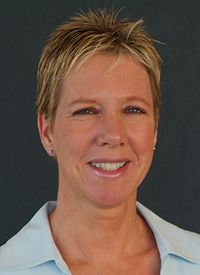Patient Safety During a Pandemic
Cancer will not wait for the COVID-19 epidemic to end.
Patricia Jakel, MN, RN, AOCN

Patients with cancer who are on active treatment and cancer survivors may have a higher risk for the coronavirus (COVID-19) according to cases reported in China. As oncology nurses, we have the added responsibilities of keeping our patients safe and COVID free. There have been many stories, news reports, and scientific data on what interventions are effective.
Physical distancing is highly effective, but isolating for patients who need physical touch and support from family members. I have witnessed the moral distress of healthcare providers unable to allow the mother of a 25-year-old girl receiving bad news to be in the room. Zoom cannot hug and hold this precious patient. Along with physical distancing, the addition of temperature screening and symptom inventory for patients and staff has allowed for safer care areas.
As always, patient education is one of the most important nursing interventions. Remember to educate patients via the “teach back” method, including proper hand washing, safety in public spaces, and the correct use of personal protective equipment (PPE). Nurses should assure that patients have access to PPE, which may be difficult to obtain in some areas of the country. Assess the home situation: can the patient isolate if a household member has symptoms or is an essential worker? Lastly, does the patient know the symptoms of COVID-19, who to contact, and where to get tested?
Cancer will not wait for the COIVD-19 epidemic to end, so we must continue to treat our patients. As nurses, our job, now more than ever, is to keep patients safe from outside threats. The lives of patients with cancer depend on our professional and safe patient care. Be safe.
Patricia Jakel, RN, co-editor in chief at Oncology Nursing News, is an advance practice nurse for the Solid Tumor Program at UCLA Healthcare. She oversees the care of 25-35 patients receiving chemotherapy, radiation therapy, symptom management, and end-of-life care. Jakel mentors new nurses to the art of oncology nursing. She is also involved in nursing research looking at moral distress and compassion fatigue. She is a frequent speaker on symptom management, new oncology treatments, resilience building and ethical issues in oncology. She has numerous publications on ethics and oncology nursing, compassion fatigue, and chemotherapy agents.


